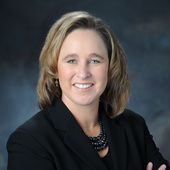Your RE/MAX Integrity, “Go To” Gal Karen J. Church at www.eugenehomesgal.com brings you a multi part series on Home Buying. Part 1: Rate Shopping The idea of purchasing a home, whether it be your first or last, is bound to bring many questions to mind. This is a natural reaction, as it is one of the biggest decisions you will ever make. Rest assured, I am here to assist you in understanding the loan process with my goal being to make your experience a pleasant one.
Shopping for the best interest rate possible has been the consumers’ primary objective when borrowing money. As well it should be! The challenge with this strategy is that there is much misleading information released on the subject by various media. Internet web sites and email marketing, along with other media such as radio, television and billboard advertising, have brought the importance of interest rates to the forefront of consumer’s minds.
The problem for the consumer with this type of marketing is that is designed to make the lender’s phone ring. Often, the advertiser offers a ridiculous low interest rate, with the intentions of using a “bait-and-switch” technique once the client is reeled in. This is often done through short pricing. Short pricing is a term that is used when a lender offers an extremely attractive interest rate, but that rate is only locked-in for a very brief period of time.
The average consumer enters into the purchase contract to buy a home for at least 30 days. Pricing on an interest rate locked in for a 7-day period is of no use to most prospective home buyers. It simply isn’t enough time to complete the transaction. While the billboard advertising or Internet banner ad may boast a terrific rate, the lock-in period is often not realistic to close the deal. Be very careful when shopping for interest rates. Make sure that when you are quoted a rate and you are asking the broker what the lock duration is. Make sure that lock period allows you enough time to complete your purchase transaction. Check with me, your Realtor on this.
Another common marketing ploy that makes interest rates appear attractive is geared around the manner in which fees are presented. All lenders are required by law to state the real cost of financing through the Annual Percentage Rate (APR) each time an interest rate is quoted in advertising. APR takes many of the fees associated with the loan into consideration, and it is usually listed in fine print as a disclaimer.
Advertisers often list a low interest rate in large bold type, but the higher APR indicated in fine print that several points are being charged to get that rate.
While APR can be helpful in comparing rates seen in advertising, it is important for consumers to know that lenders use different methods to calculate APR. Hence it is not an entirely failsafe method for comparing interest rates.
Additionally, the consumer must take into consideration that the interest rate is not the only important factor in obtaining financing. Another equally important question to answer is, “How long do you need to borrow this money?”
The length of time you need to borrow the money has a profound impact on whether or not you should be paying upfront fees (points), and likewise has bearing on your loan program selection.
Statistically, homeowners move every 7-10 years. Once of the common mistakes made by home buyers I automatically selecting a 30-year fixed rate loan program for financing instead of evaluating other options. The chance of needing the financing for 30 years is actually slim-to-none. If the buyer is somewhat transient in their job or is planning a family in the near future, the home may not really meet their long-term needs.
Buyers are often solicited with programs that are contingent upon 30-year financing. The interest rates that are offered, regardless of how long they might be, are often irrelevant as rates are dependent upon several factors, including down payment and credit score.
If a buyer has at least 5% for a down payment (at least 3.5% for an FHA loan), an interest rate that is fixed for three, five, or seven years may be a much more realistic option. This often allows the buyer to capitalize on a low introductory rate and save a significant amount of money, which can then go toward the down payment of their next home. As always, current market conditions dictate what the best loan programs will be at the time you want to buy a home. The most important thing is to ask your lender about available programs and look at all of your options.
It is of utmost importance to work with an experienced loan consultant that understands some of the practical aspects of financial planning. A well-versed consultant will ask you many questions about your short and long term goals and assist you in choosing a loan program that is truly suited to those goals.
This information is provided by Mortgage Consultant, Josh Kittel, at Real Estate Lending Group Services. jkittel@relg.net
Please feel free to call me at 541-520-9242 if you have any questions or want to meet up with a lender to go over your lending options.

Comments(1)